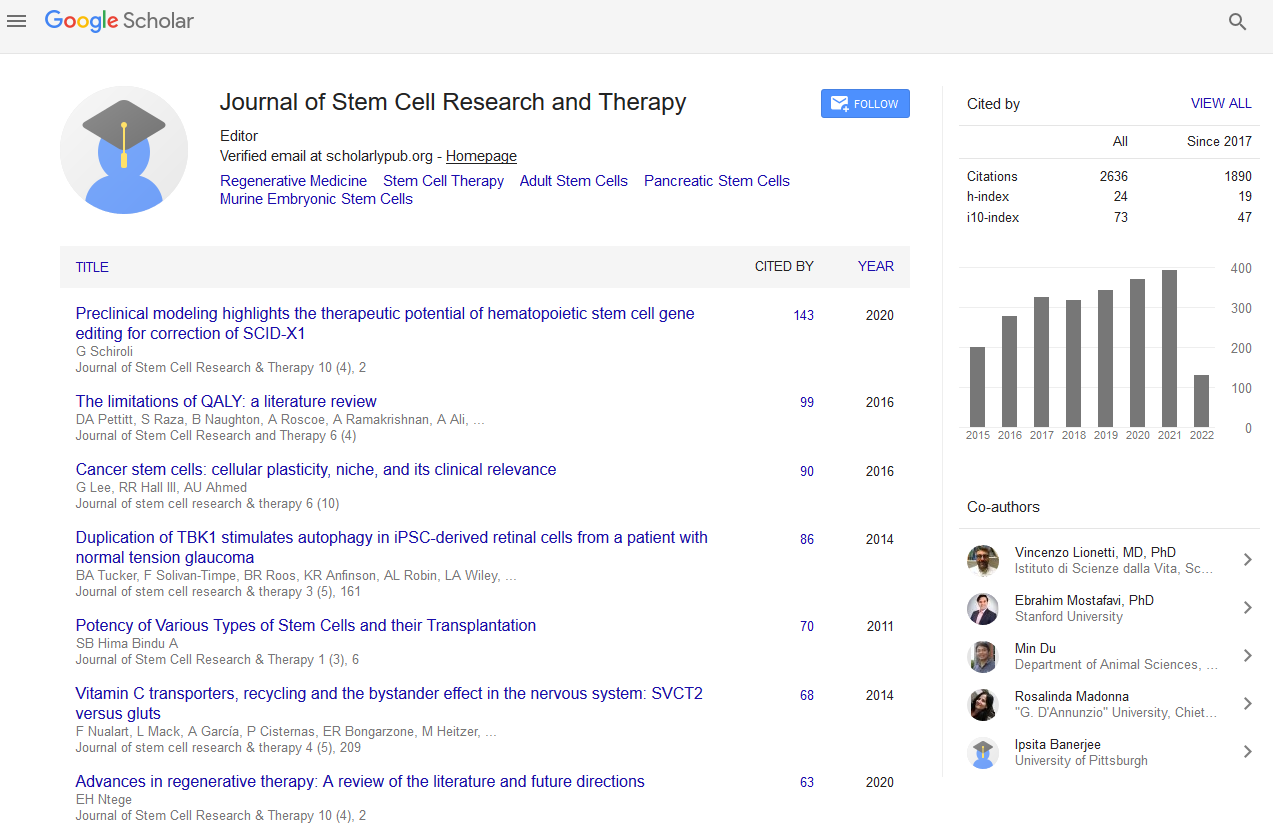Indexed In
- Open J Gate
- Genamics JournalSeek
- Academic Keys
- JournalTOCs
- China National Knowledge Infrastructure (CNKI)
- Ulrich's Periodicals Directory
- RefSeek
- Hamdard University
- EBSCO A-Z
- Directory of Abstract Indexing for Journals
- OCLC- WorldCat
- Publons
- Geneva Foundation for Medical Education and Research
- Euro Pub
- Google Scholar
Useful Links
Share This Page
Journal Flyer

Open Access Journals
- Agri and Aquaculture
- Biochemistry
- Bioinformatics & Systems Biology
- Business & Management
- Chemistry
- Clinical Sciences
- Engineering
- Food & Nutrition
- General Science
- Genetics & Molecular Biology
- Immunology & Microbiology
- Medical Sciences
- Neuroscience & Psychology
- Nursing & Health Care
- Pharmaceutical Sciences
Abstract
Convulsive Seizure Protection after Hippocampal Transplantation of Mesenchymal Cells from Adipose Tissue in Mice
Tamura BP, Almeida DC, Felizardo RJ, Olanda GC, Bocca LF, Pinhal NS, Alves-de-Moraes LBC, Covolan L, Câmara NOS and Longo BM
A considerable number of epileptic patients had become resistant to antiepileptic drugs, justifying the need for development of new therapeutic strategies to treat epilepsy. The use of mesenchymal stem cells is an innovative and accessible strategy for the treatment of neuronal disorders, due to their involvement in immunoregulatory mechanisms, trophic and anti-apoptotic action. Objective: Based on this evidence, we evaluated the protective effect of mesenchymal cells from adipose tissue (MCAT) by behavioral and inflammatory responses against convulsive seizure induced by maximum electroconvulsive shock (MES). Methods: MCAT cells were transplanted into the hippocampus of adult male mice, and ten days after the transplantation MES stimulation was applied to induce a generalized tonic-clonic seizure. To evaluate the anticonvulsant activity of MCAT cells, we evaluated the parameters involved with: protection and reduction in the duration of tonic phase, reduction in the mortality rate, and alteration in the hippocampal gene expression of IL-1beta, IL-6, IL-4, IL-10, caspase-1, iNOS and TNFα. Results: MCAT cells transplanted into the hippocampus altered the convulsive threshold, showed anticonvulsant effect by protecting from tonic seizures and mortality and reduced the hippocampal expression of transcripts related to inflammatory response such as IL-1beta, IL-6, caspase-1 and iNOS and increased the level of anti-inflammatory interleukin IL-4. Conclusion: The anticonvulsant effects of the MCAT cells on acute convulsive seizure may be related to inhibitory factors and immunomodulatory mechanisms assigned to mesenchymal cells in the hippocampus. These anticonvulsants mechanisms of MCAT cells bring strong therapeutic implications for the control of epileptic seizures.


